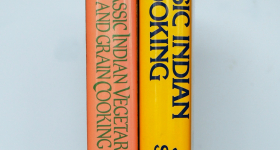When people ask where your parents are from, you say the name of a city two hours away. It is not where they grew up but it is close enough. You land at the airport there and it has that feeling of almost-familiarity, like stepping into a dream. Somewhere, you have read that every face you see in a dream is one you have seen before. That is what arriving feels like, what it always feels like, like you ought to know where you are but you are dreaming and so you don’t. But here, now, you are not dreaming.
You are not dreaming when your grandparents move out of that apartment you have always known, and you did not know this country had retirement homes — what of xiaoshun? what of piety? — and yet here is one, with calligraphy you can’t read at its arched entrance and a statue of a man you would know if you had grown up here. But you did not, and once you tried to add up every day you have spent here and it did not reach a year. Still, you will not call this place a foreign country. It is yours. It is close enough.
There are words for your grandfather’s decline but you do not know them. You do not bother asking for a translation.
Instead, you wake up the same time he does every morning although back home — not home, but elsewhere, the place you are when you are not here — you are one of those people who likes to hit ‘snooze’ on your alarm. 7 am and you grip his armpits, lift him into his wheelchair, see that jagged scar along his arm. You asked him once where it came from, but of everything he said the only word you understood was war. There was a book you did not read in college and it was called The Past is a Foreign Country. These are how the days pass: a nurse asks your grandfather if he knows who you are. He is losing his hearing and so the nurse yells it while hanging up socks. It is raining that day. When he nods, the nurse asks for your name.
First you are angry. If you were elsewhere you would say some cutting remark but you are limited in this language and also — you are waiting, wondering. You should not be afraid and yet you are. But your grandfather says your name. He says it easily. You tip your head back and relief falls on you like rain.
You do not think it now, but later — on a plane, when the world is dark — you wonder if that is the last time you will hear him say it.
It is 10 am and your flight leaves in a few hours. You no longer bother adding the days up but what if this is the time that makes it a year? You yell goodbye in your grandfather’s ear; he tries to rise from his seat and his arms tremble. Remember: him lifting you up as a child. Remember: time moves backwards and forwards. You move to help him up — armpit, shoulder, elbow — but your cousin is driving you to the airport and she says kuai, kuai, the words staccato in their urgency, traffic is bad today, traffic is bad every day, she is always here and so what of this moment? It is just one of many.
Contrast her and you. Contrast here and elsewhere. The room is saturated with summer heat and the sound of the Olympics playing on the television. Your hand touches his. You have said goodbye already. Say this instead: ming nian jian. Say it like an oath. Say it like it will keep him here. Another year and you will be back. It is all you can promise and it never feels like enough.
When you go outside, see the suitcase, the car, the sky that shines a blue that is almost fluorescent. It’s rare to have a sky like this. Something about pollution. You do not know if it’s true or if it’s what other people say to make this place less than it is. Either way you will breathe it in. The longer you hold your breath the longer this city will belong to you.
Eventually, though, you let go. You breathe out and then in, gasping. You will never be able to hold on to this place as long as you want to. So here, press your face against the glass of the car window. How much more do you need for a year? How much more do you need for a life? Watch the road disappear, watch the sun move across the sky, watch the planes that are taking off and landing in the distance. This is what you know: birds migrate south for the winter. You live somewhere temperate and so every year you see them, full of color and unexpected joy, even as the days grow colder, as shadows stretch long and hungry against pavement. You will go and you will return. The birds come every year and yet they always take you by surprise.










Comments